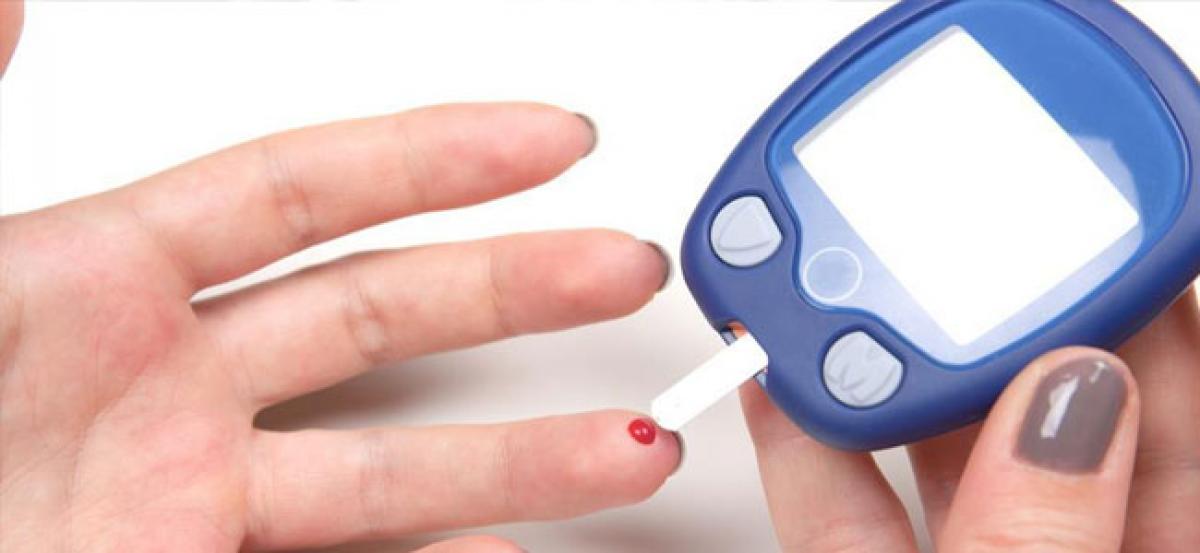Live
- Over 7,600 Syrians return from Turkiye in five days after Assad's downfall: minister
- Delhi BJP leaders stay overnight in 1,194 slum clusters
- Keerthy Suresh and Anthony Thattil Tie the Knot in a Christian Ceremony
- AAP, BJP making false promises to slum dwellers for votes: Delhi Congress
- 'Vere Level Office' Review: A Refreshing Take on Corporate Life with Humor and Heart
- Libya's oil company declares force majeure at key refinery following clashes
- Illegal Rohingyas: BJP seeks Assembly session to implement NRC in Delhi
- Philippines orders full evacuation amid possible volcanic re-eruption
- Government Prioritizes Welfare of the Poor, says Dola Sri Bala Veeranjaneyaswamy
- Two Russian oil tankers with 29 on board damaged due to bad weather
Just In

Diabetes patients, rejoice. In what could potentially revolutionise diabetes management for millions of patients, scientists, including those of Indian origin, are developing an insulin pill that could transform how diabetics manage their blood sugar levels. If successful, it could mean an end to the painful injections diabetes patients have to take every day. Given the choice of taking a pill or
How to control diabetes: In what could end the daily insulin jabs for diabetics, scientists are developing an insulin pill that could control blood sugar levels in patients.
Diabetes patients, rejoice. In what could potentially revolutionise diabetes management for millions of patients, scientists, including those of Indian origin, are developing an insulin pill that could transform how diabetics manage their blood sugar levels. If successful, it could mean an end to the painful injections diabetes patients have to take every day. Given the choice of taking a pill or injecting oneself with a needle, most of us would opt to regulate a chronic health condition by swallowing a pill.
Here’s more about diabetes cure, symptoms and treatment, diet plan you need to follow to manage the disease.
However, for millions of people living with type 1 diabetes, a painful needle prick once or twice daily is the only option for delivering the insulin that their bodies cannot produce on their own. Insulin therapy, by injection just under the skin or delivered by an insulin pump, generally keeps the glucose levels of most diabetics in check.
“But many people fail to adhere to that regimen due to pain, phobia of needles, and the interference with normal activities,” said Samir Mitragotri, a professor at Harvard John A Paulson School of Engineering and Applied Sciences (SEAS). “The consequences of the resulting poor glycemic control can lead to serious health complications,” said Mitragotri.
Finding a way to deliver insulin orally has been elusive; the protein does not fare well when it encounters the stomach’s acidic environment and it is poorly absorbed out of the intestine. The key to the new approach is to carry insulin in an ionic liquid comprised of choline and geranic acid that is then put inside a capsule with an acid-resistant enteric coating.
The formulation is biocompatible, easy to manufacture, and can be stored for up to two months at room temperature without degrading, which is longer than some injectable insulin products currently on the market. “Once ingested, insulin must navigate a challenging obstacle course before it can be effectively absorbed into the bloodstream,” said Mitragotri. “Our approach is like a Swiss Army knife, where one pill has tools for addressing each of the obstacles that are encountered,” he said.
By encapsulating the insulin-ionic liquid formulation in an enteric coating, the team overcame the first obstacle, resisting breakdown by gastric acids in the gut.
This polymer coating dissolves when it reaches a more alkaline environment in the small intestine, where the ionic liquid carrying insulin is released. “When a protein molecule such as insulin enters the intestine, there are many enzymes whose function is to degrade the proteins into smaller amino acids,” said Amrita Banerjee, who conducted the research while working as a postdoctoral fellow in Mitragotri’s lab. “But the ionic liquid-borne insulin remains stable,” said Banerjee, who is now an assistant professor at North Dakota State University
The choline-geranic acid formulation also was shown to be adept at penetrating two final barriers - the layer of mucus lining the intestine and the tight cell junctions of the intestine wall, through which large-molecule drugs such as insulin cannot easily pass. Other researchers have tried various means of surmounting these barriers - by re-engineering the insulin molecule, coating it in protective polymers, and introducing additives to inhibit breakdown by enzymes or to enhance absorption.
However, no oral insulin delivery product is currently available in the clinic. Orally ingested insulin would more closely mimic the way in which a healthy individual’s pancreas makes and delivers insulin to the liver, where up to 80% is extracted and the rest is circulated through the bloodstream. It could also mitigate the adverse effects of taking injections over long period of time.

© 2024 Hyderabad Media House Limited/The Hans India. All rights reserved. Powered by hocalwire.com







